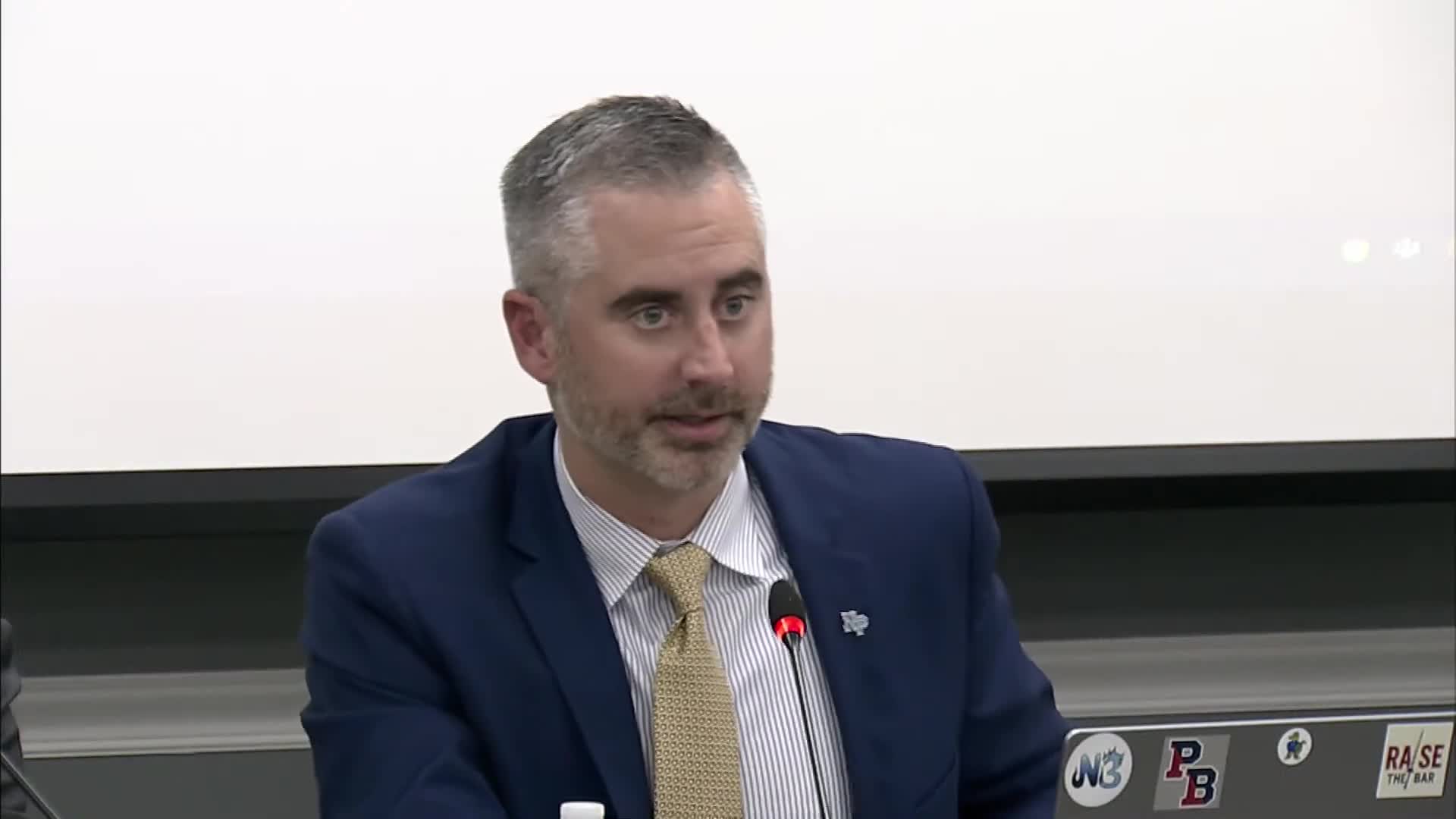North Penn board tables proposal to create sworn school police force after students, parents urge delay
Get AI-powered insights, summaries, and transcripts
Subscribe
Summary
The North Penn School District presented a plan to reorganize its Office of Emergency Management into a Department of Public Safety that would include sworn school police officers. Students and parents urged postponement for broader student engagement and transparency; the board voted 8–1 to table the proposal.
North Penn School District officials on Tuesday presented a proposal to reorganize the Office of Emergency Management and Safe Schools into a Department of Public Safety that would include sworn school police officers, then the board voted 8–1 to table the plan after students and community members urged delay and broader input.
Superintendent Dr. Bauer opened the work session by explaining the administration’s recommendation to move from the current safe-schools office to a department that would allow the district to petition the Court of Common Pleas to grant selected district employees police powers, including the authority to issue citations, effect arrests and carry firearms on duty. Presenter Brandon Roan told the board the model aims to combine seven layers of school safety—culture and prevention, physical security, operations, training, technology, response and recovery—with on-site sworn officers for consistency and relationship-building.
Roan, describing the steps required, said the district ‘‘would need to petition the Court of Common Pleas’’ and that state law requires completion of a police academy and the National Association of School Resource Officers (NASRO) basic training for officers. He also presented an estimated initial startup cost of ‘‘approximately $250,000’’ and said there would be ongoing personnel-related costs for the five officer positions described in the presentation. The transcript includes a truncated ongoing-cost figure in the presentation; board members later referenced roughly $60,000 per year and a 10-year estimate when debating budget implications.
Students and parents strongly opposed moving straight to a vote without broader student and community engagement. Melissa Rich, a junior at North Penn High School, said she surveyed about 160 students and that ‘‘98% said that they were unaware’’ of the plan, asking the board to ‘‘consider postponing the vote and allow time for a broader student awareness and involvement.’’ Rebel Casahoon, president of the Black Student Union, told the board that ‘‘if you move forward with this vote now without meaningful student participation, you’ll be making the wrong decision about process and fairness.’’ Parent Carstine Nervell urged investment in counselors and mental-health services instead of arming officers, calling the startup and training costs ‘‘incredibly expensive.’’
Board members debated whether the motion on the floor would merely authorize the administration to start drafting policies, memoranda of understanding with municipalities, job descriptions and training protocols, or whether a vote would effectively start an irreversible process. Legal counsel advised that the Sunshine Act’s notice requirement had been met; administrators noted the item had been discussed in a Safe Schools Committee meeting and that an email linking to the presentation had been sent to families.
A board member moved to table the item ‘‘until we get more answers and get more information’’; another seconded the motion. During a roll-call vote the motion to table passed 8–1, with Mister Casa recorded as the sole nay. The board president and administration said tabling would not end the matter: they committed to wider student and stakeholder engagement, additional policy drafting in committee, and returning the matter to the board for specific votes (including personnel actions and any final policy approvals).
What’s next: administrators said next steps would include drafting policies, developing MOUs with local police partners, formalizing job descriptions and certification/training plans, and presenting those items to the board and relevant committees. Board leaders also said they would work with the students who spoke at the meeting and plan public forums and surveys to broaden participation before any future vote.
